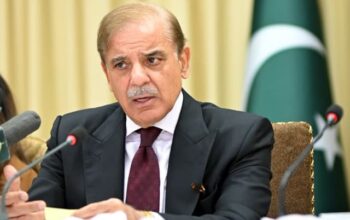By Staff Reporter
ISLAMABAD: The Election Commission of Pakistan (ECP) on Friday asked the Supreme Court to stay its July 12 order granting reserved seats to former Prime Minister Imran Khan’s Pakistan Tehreek-e-Insaf (PTI) party after the court’s verdict was deemed to exceed its authority and effectively rewrite the Constitution.
The ECP contends the Sept 14 explanatory order breaches the principle of separation of powers by effectively rewriting the Constitution, a move that could have far-reaching implications for the country’s electoral framework.
The ECP filed two review petitions with the Supreme Court, requesting guidance on the impact of the Elections (Second) Amendment Act, 2024, on the court’s previous rulings, including a clarification order issued on Sept 14 and a detailed judgment on Sept 23.
The ECP’s petition comes after National Assembly Speaker Ayaz Sadiq informed the commission that amendments to the Election Act 2017, made after the court’s July 12 ruling, rendered the verdict “incapable of implementation.”
The amended law introduces retroactive changes, including Sections 66 and 104-A, concerning candidate affiliation declarations and party membership.
The Supreme Court ruled in July that the PTI party is eligible for over 20 additional reserve seats.
“The Supreme Court cannot rewrite the Constitution on pretext of interpretation,” the ECP said in its petition.
The ECP argued the Supreme Court’s detailed judgment, issued on Sept 23, “deviated from [the] July 12 verdict” and granted independent lawmakers 15 days to join a party, contrary to the Constitution’s three-day limit.
“The Constitution binds independent lawmakers to join any political party within three days, but the Supreme Court granted them 15 days — a move which changed the words of the Constitution,” the ECP said.
The commission also noted that independent candidates submitted affidavits of allegiance to Sunni Ittehad Council (SIC), which was “completely ignored” in the court’s ruling.
“Even if the certificates, submitted by PTI Chairman [Barrister Gohar Ali Khan], are recognised or accepted, the number of PTI members does not reach 39,” the ECP said.
The ECP maintained that reserved seats cannot be allocated to PTI, citing the party’s failure to claim its share at any forum.
“The reserved seats cannot be allocated to PTI,” the ECP said.
A 13-member full bench, led by Chief Justice Qazi Faez Isa, ruled PTI eligible for reserved seats on July 12, nullifying a Peshawar High Court order upholding the ECP’s decision denying seats to SIC.
The verdict was passed with an 8-5 majority.
The PTI candidates contested the Feb 8 general elections as independents after the top court upheld the ECP decision to deprive the opposition party of its iconic electoral symbol — bat — over “unlawful” intra-party polls.
They went on to win the most seats, but the ECP initially ruled they were not entitled to reserved seats for women and minorities.
PTI-backed candidates joined the SIC to claim reserved seats, as independents are ineligible. The ECP, however, denied reserved seats to SIC due to its failure to submit a list of candidates within the stipulated time.
Copyright © 2021 Independent Pakistan | All rights reserved




